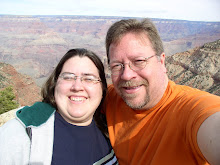Many times, I walk outside and children are doing what they do best: Playing! Which is fabulous. However, I find that teachers sometime use this as a break time; which is far from what it is! Maybe because the very first center I worked in had opportunities everywhere to stimulate play is the reason I have never taken a break inside or out, unless it was my actual break time. The thing is, it's real easy to stimulate play all over. Yes, the children are playing, but we are adding to their play to stimulate more brain growth, more opportunities for complex thoughts, and to bring them to the next level. One great activity that does this is a treasure hunt outside.
To set this up, before the children go outside, bury objects (big and small) in the sand and all around the yard. To accommodate all levels of development, leave some things unburied, but hidden, some out in the open, and then bury more. Make a map of where to find things (x marks the spot) and give copies to each child.
You will also need to provide different tools: magnifying glasses, shovels, sand sifters, I even use paintbrushes like the archaeologists.
Before going outside, introduce the activity to the children. You can make it a fictional game by telling a story about someone hiding treasures and you finding a map when you came in and they get to help you find things; or just tell them the game and get going!
I also like to have a large empty water table in the middle of the yard so that they can place all the found items in there. Post a larger map and mark off where each item was found. You may also want to have a checklist to make sure they find everything.
Some children will only be interested for about a minute, others will spend all of outside time (typically an hour plus) searching...even after everything is found. Either option is okay, the point is that you have stimulated their minds and their play. I can guarantee, some children will play this game for weeks to come, making up their own play and rules amongst themselves.
This introduces them to maps, looking at a map and figuring out where things are in relation to the real world is a very complex skill. This will also build on social skills as they work together to find things, language skills, critical thinking, and so much more.
Oh, one more note: DON'T WORRY ABOUT BEING FAIR!!! It's okay if Johnny finds 10 things and Luke only finds 2. Johnny is obviously at a more advanced level of thinking. By trying to make things "fair", Johnny will get frustrated with you and not bother trying things, Luke will not learn anything positive about himself. I am a strong believer that small inconsequential competition is okay, it's how the children are taught to deal with it that is important.
Subscribe to:
Post Comments (Atom)

No comments:
Post a Comment